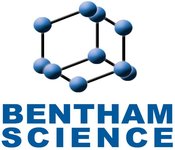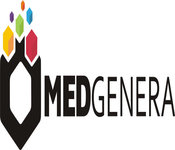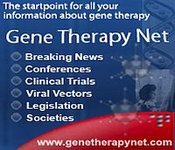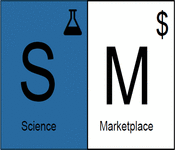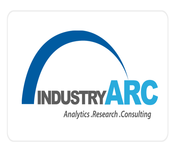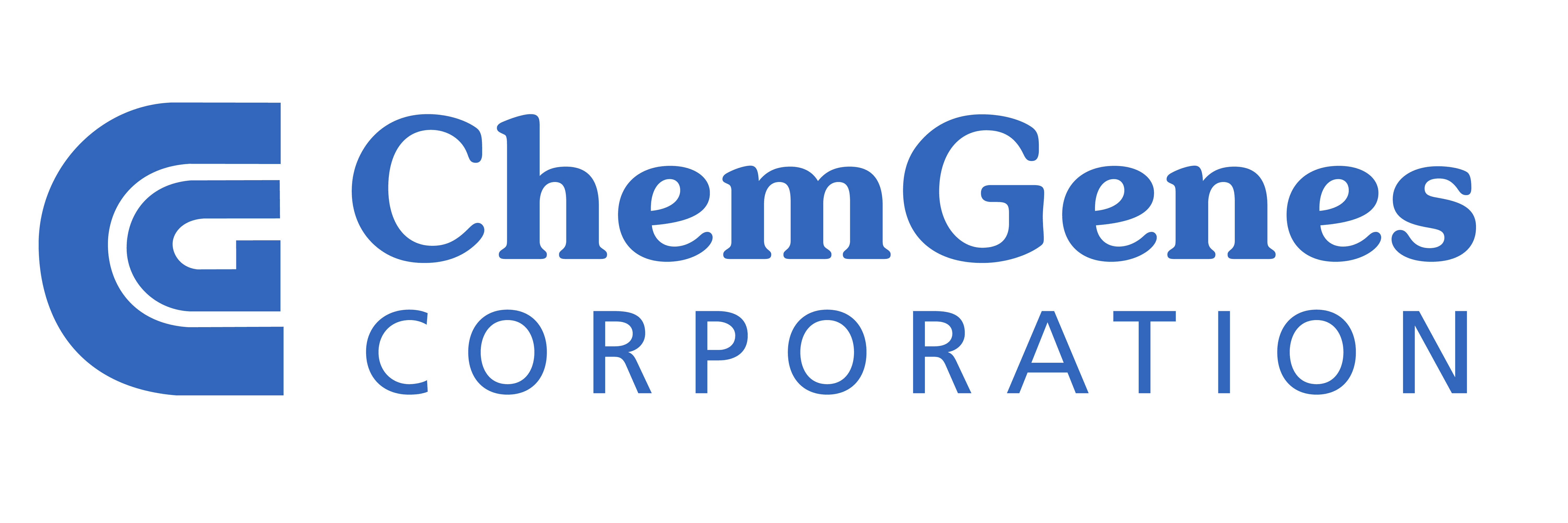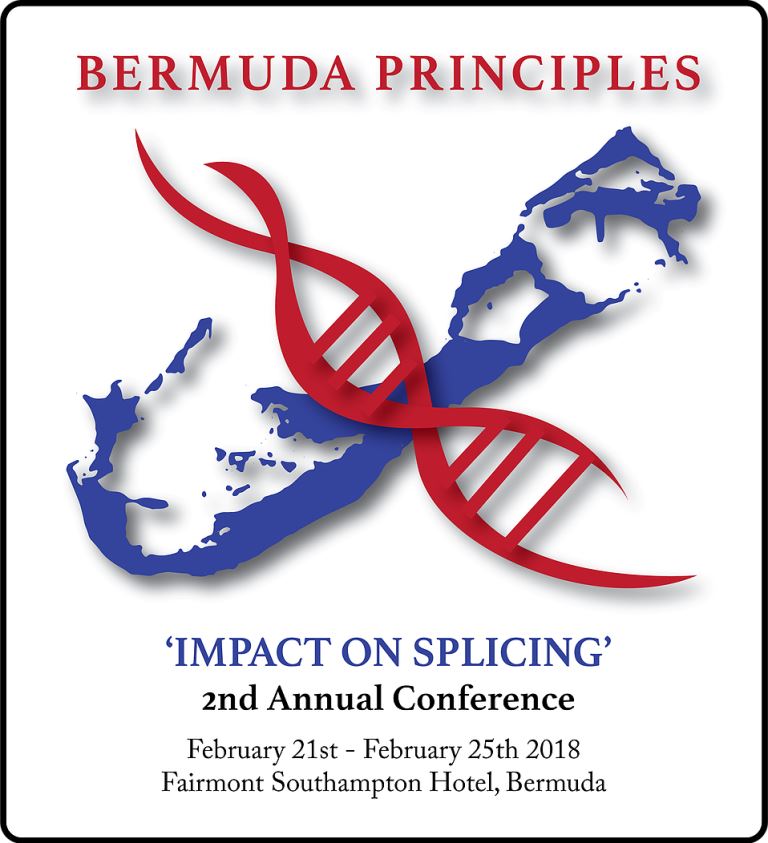Theme: Explore the science of Nucleic Acids
Molecular Biology 2017
Conference Series is pleased to invite the contributors across the globe on its " 2nd International Conference on Molecular Biology, Nucleic Acids & Molecular Medicine" which is slated at Philadelphia, USA. during August 31-September 01, 2017.
2nd International Conference on Molecular Biology, Nucleic Acids & Molecular Medicine (Molecular Biology 2017) conference provides a premier platform to present and discuss fundamental discoveries in molecular biology, which have impacted nearly every facet of biology with wide ranging implications for human health. The overarching long-term goal of this conference is to create a scientific environment conducive to cross-disciplinary discussion and exchange of new ideas by bringing together the world’s leading researchers with junior scientists, to enhance our understanding of the role of nucleic acids in biology, human health and disease. Specific topics will include: Chemical Biology and Nucleic Acid Chemistry, DNA Replication and Genome Integrity; RNA/DNA Structure and Dynamics; Chromatin and Transcription; RNA/DNA in Cellular Defense; Computational Biology; RNA/DNA Conflicts; Non-Coding RNAs; and Mechanisms of Signal Transduction, and special aspects of Molecular Medicine. The Nucleic Acids Conference is unique in bringing the RNA and DNA fields together in the field of Molecular Biology and Molecular Medicine.
Our Conference will provide a perfect platform addressing:
· Laudable talks by the top-notch of the global scientific community
· Sterling workshop sessions
· Remarkable Awards and Global Recognition to meritorious Researchers
· Global Networking with 50+ Countries
· Novel Techniques to Benefit Your Research
· Global Business and Networking Opportunities
· Exquisite Platform for showcasing your products and International Sponsorship
About Philadelphia:
Philadelphia is the only World Heritage City in the United States. This is the largest city in the Commonwealth of Pennsylvania and the fifth-most-populous in the United States. The area's many universities and colleges make Philadelphia a top international study destination, as the city has evolved into an educational and economic hub.Philadelphia is the center of economic activity in Pennsylvania and is home to seven Fortune 1000 companies. With a gross domestic product of $388 billion, Philadelphia ranks ninth among world cities and fourth in the nation. Philadelphia is also home to a handful of biotechnology, pharmaceutical and medical device companies. ALS Biopharma, Areon Biosciences, Atrin Pharmaceuticals, Digna Biotech, Enantigen Therapeutics, MB Research Laboratories, One World Biotech, Impact Biologicals are just to name a few of the companies which are located in the state of Philadelphia. The city is also home to five schools of medicine: Drexel University College of Medicine, Perelman School of Medicine at the University of Pennsylvania, Philadelphia College of Osteopathic Medicine, Temple University School of Medicine, and the Thomas Jefferson University. Hospitals, universities, and higher education research institutions in Philadelphia's four congressional districts received more than $252 million in National Institutes of Health grants in 2015. The city is known for its arts, culture, and history, attracting over 39 million domestic tourists in 2013. The city is known for its hoagies, scrapple, soft pretzels, water ice, Irish potato candy, Tastykake, and is home to the cheesesteak. Philadelphia is home to many national historical sites that relate to the founding of the United States and welcomes around 40 million visitors every year from all around the world as tourists. From incredible historic sights with roots that date back to the beginning of our country's history like Independence National Historical Park, to places that house great works of art such as the Philadelphia Museum of Art, to incredible food venues, and gardens that will have you talking about their beauty for a long time afterwards, this city is loaded with incredible attractions. So holiday in Philadelphia, USA affords access to enjoy great sites relating to the history and ancient culture of USA.
For more details, please visit: http://nucleicacids.conferenceseries.com/
ConferenceSeries Ltd invites all the attendees from all over the world to attend the “2nd International Conference on Nucleic Acids, Molecular Biology & Molecular Medicine" which is lined up at Philadelphia, USA during August 31-September 01, 2017 which comprise keynote presentations, Oral talks, Poster presentations and Exhibitions.
Molecular Biology 2017 conference is an excellent platform to learn and discuss about the various aspects of Molecular Biology such as Nucleic Acids, Gene Expression and Epigenetics, RNA Interference, Nucleic Acid Enzymes, RNA Function & Protein Synthesis and it lays special emphasis on various aspects related to Molecular Medicine.
Track 1: DNA Replication and Recombination
For an International Conference on Nucleic Acids , DNA Replication is the first and most vital topic to be discussed. DNA Replication which is the basis of biological inheritance starts with the division of a cell into two daughter cells and in this process a double stranded DNA molecule is copied to generate two identical copies of DNA. Researchers are continuing with genome wide studies in DNA Replication which is resulting in may novel research. Many Universities worldwide are carrying out researches in the field of DNA Replication and Genetic Recombination. Being specific are The Penn State University, The Rockefeller University, Massachusetts General Hospital, University of Washington where many capable and talented Scientists are working in this field.
Relevant Conferences:
38th Annual Lorne Genome Conference, February 12-14, 2017 Lorne, Australia; International Conference on Genomic Medicine, February 22-24, 2017 Maryland, United States; EMBL Conference on Chromatin and epigenetics May 03-06, 2017 Heidelberg, Germany; International Conference on Biochemistry and Molecular Biology, April 03-05 2017 Munich, Germany; American Society for Chemistry and Molecular Biology Annual Meeting April 22-26, 2017 Chicago, USA; 2nd DNA Replication as a Source of DNA Damage Conference July 03-06, 2017 Rome, Italy; 2nd Zing Genomic Integrity Conference 2017, July 09-13, 2017 Dublin, Ireland
Track 2: DNA Damage and Repair
DNA Damage and DNA Repair both terms are related with the maintenance of genome integrity. DNA Damage may lead to mutation and finally causing many serious diseases. The biochemical mechanisms of these pathways have been characterized and the impact of this work was recently highlighted by the selection of Tomas Lindahl, Aziz Sancar and Paul Modrich as the recipients of the 2015 Nobel Prize in Chemistry for their seminal work in defining DNA repair pathways. Currently University of Alabama, UNC School of Medicine, Emory University School of Medicine and Newcastle University are working on this field.
Relevant conferences:
38th Annual Lorne Genome Conference, February 12-14, 2017 Lorne, Australia; International Conference on Genomic Medicine, February 22-24, 2017 Maryland, United States; EMBL Conference on Chromatin and epigenetics May 03-06, 2017 Heidelberg, Germany; International Conference on Biochemistry and Molecular Biology, April 03-05 2017 Munich, Germany; American Society for Chemistry and Molecular Biology Annual Meeting April 22-26, 2017 Chicago, USA; 2nd DNA Replication as a Source of DNA Damage Conference July 03-06, 2017 Rome, Italy; 2nd Zing Genomic Integrity Conference 2017, July 09-13, 2017 Dublin, Ireland
Track 3: RNA Processing and Protein Synthesis
RNA splicing is a process in which introns are removed and exons are joined prior to translation. In other words, RNA splicing is modification of the nascent pre-messenger RNA (pre-mRNA) transcript. To address the questions and other aspects of mRNA synthesis and processing, many researchers turned to the study of DNA viruses that infect animal cells in culture. RNA processing refers to any modification made to RNA between its transcription and its final function in the cell. These processing steps include the removal of extra sections of RNA, specific modifications of RNA bases, and modifications of the ends of the RNA. Being Specific, The University of Manchester, Yale Center for RNA science and Medicine, Rutgers University are working on this field for bringing out many challenging results.
Relevant Conferences:
38th Annual Lorne Genome Conference, February 12-14, 2017 Lorne, Australia; International Conference on Genomic Medicine, February 22-24, 2017 Maryland, United States; EMBL Conference on Chromatin and epigenetics May 03-06, 2017 Heidelberg, Germany; International Conference on Biochemistry and Molecular Biology, April 03-05 2017 Munich, Germany; American Society for Chemistry and Molecular Biology Annual Meeting April 22-26, 2017 Chicago, USA; 2nd DNA Replication as a Source of DNA Damage Conference July 03-06, 2017 Rome, Italy; 2nd Zing Genomic Integrity Conference 2017, July 09-13, 2017 Dublin, Ireland
Track 4: RNA Editing and Interference
RNA editing is a molecular process through which some cells can make discrete changes to specific nucleotide sequences within a RNA molecule after it has been generated by RNA polymerase. RNA editing has been observed in the RNA sequences of viruses, archaea and prokaryotes. RNA editing occurs in the cell nucleus and cytosol, as well as within mitochondria and plastids. In vertebrates, editing is rare and usually consists of a small number of changes to the sequence of affected molecules. Two types of small ribonucleic acid (RNA) molecules – microRNA (miRNA) and small interfering RNA (siRNA) – are central to RNA interference. The study of RNA interference incudes its cellular mechanisms, variation among organisms, biological functions like immunity, down regulation of genes, up regulation of genes and its applications in Gene knockdown, Functional genomics, medicine and biotechnology. The University of Albany situated at New York is rigorously involved towards all the novel research on RNA. The RNA Institute maintained by Paul Agris (University at Albany) is the best known platform for carrying out RNA analysis. Added to that, The RNA Society formed in 1993 facilitates sharing and dissemination of experimental results and emerging concepts in ribonucleic acid research
Relevant Conferences:
38th Annual Lorne Genome Conference, February 12-14, 2017 Lorne, Australia; International Conference on Genomic Medicine, February 22-24, 2017 Maryland, United States; EMBL Conference on Chromatin and epigenetics May 03-06, 2017 Heidelberg, Germany; International Conference on Biochemistry and Molecular Biology, April 03-05 2017 Munich, Germany; American Society for Chemistry and Molecular Biology Annual Meeting April 22-26, 2017 Chicago, USA; 2nd DNA Replication as a Source of DNA Damage Conference July 03-06, 2017 Rome, Italy; 2nd Zing Genomic Integrity Conference 2017, July 09-13, 2017 Dublin, Ireland
Track 5: RNA and DNA Nanotechnology
DNA and RNA Nanotechnology is newly emerging field of bio-nano-technologies. DNA and RNA Nanotechnology bridges the gap between newest developments in nucleic acids, structural folding and biomaterial sciences. It links understanding of DNA/RNA molecular behaviour with macroscopic properties that can be incorporated into medicinal applications.
Relevant Conferences:
38th Annual Lorne Genome Conference, February 12-14, 2017 Lorne, Australia; International Conference on Genomic Medicine, February 22-24, 2017 Maryland, United States; EMBL Conference on Chromatin and epigenetics May 03-06, 2017 Heidelberg, Germany; International Conference on Biochemistry and Molecular Biology, April 03-05 2017 Munich, Germany; American Society for Chemistry and Molecular Biology Annual Meeting April 22-26, 2017 Chicago, USA; 2nd DNA Replication as a Source of DNA Damage Conference July 03-06, 2017 Rome, Italy; 2nd Zing Genomic Integrity Conference 2017, July 09-13, 2017 Dublin, Ireland
Track 6: Epigenetics
Epigenetics means a change in phenotype without any change in genotype. DNA methylation, histone modification and non-coding RNA associated gene silencing are considered to initiate and sustain epigenetic change. New and on-going research is continuously detecting the role of epigenetics in a variety of human disorders and fatal diseases.
Relevant Conferences:
38th Annual Lorne Genome Conference, February 12-14, 2017 Lorne, Australia; International Conference on Genomic Medicine, February 22-24, 2017 Maryland, United States; EMBL Conference on Chromatin and epigenetics May 03-06, 2017 Heidelberg, Germany; International Conference on Biochemistry and Molecular Biology, April 03-05 2017 Munich, Germany; American Society for Chemistry and Molecular Biology Annual Meeting April 22-26, 2017 Chicago, USA; 2nd DNA Replication as a Source of DNA Damage Conference July 03-06, 2017 Rome, Italy; 2nd Zing Genomic Integrity Conference 2017, July 09-13, 2017 Dublin, Ireland
Track 7: Recombinant DNA Technologies
Recombinant DNA Technology is the joining together of two different DNA molecules that are inserted into a host organism to produce new genetic recombination. Recombinant DNA technology has made many tasks easier for the Scientists such as isolation of one gene or any other segment of DNA, determination of nucleotide sequence, study of transcripts, mutation of transcripts and reinserting it into a living organisms thus giving rise to the concept of transgenic.
Relevant Conferences:
38th Annual Lorne Genome Conference, February 12-14, 2017 Lorne, Australia; International Conference on Genomic Medicine, February 22-24, 2017 Maryland, United States; EMBL Conference on Chromatin and epigenetics May 03-06, 2017 Heidelberg, Germany; International Conference on Biochemistry and Molecular Biology, April 03-05 2017 Munich, Germany; American Society for Chemistry and Molecular Biology Annual Meeting April 22-26, 2017 Chicago, USA; 2nd DNA Replication as a Source of DNA Damage Conference July 03-06, 2017 Rome, Italy; 2nd Zing Genomic Integrity Conference 2017, July 09-13, 2017 Dublin, Ireland
Track 8: Sequencing
Sequencing is process of determining the order of nucleotide bases (A,C,T and G) within the stretch of DNA. The sequence of DNA encodes the important information for living things to survive and reproduce. Determining the sequence is therefore useful in elemental research into why and how organisms live, as well as in applied subjects. Because of the key importance DNA to living things, knowledge of DNA sequencing are helpful in practically any area of biological research. E.g. in medicines it can be used to identify, diagnose, and potentially develop treatments for genetic diseases. Similarly, research into pathogens may head to treatments for contagious diseases.
Relevant conferences:
38th Annual Lorne Genome Conference, February 12-14, 2017 Lorne, Australia; International Conference on Genomic Medicine, February 22-24, 2017 Maryland, United States; EMBL Conference on Chromatin and epigenetics May 03-06, 2017 Heidelberg, Germany; International Conference on Biochemistry and Molecular Biology, April 03-05 2017 Munich, Germany; American Society for Chemistry and Molecular Biology Annual Meeting April 22-26, 2017 Chicago, USA; 2nd DNA Replication as a Source of DNA Damage Conference July 03-06, 2017 Rome, Italy; 2nd Zing Genomic Integrity Conference 2017, July 09-13, 2017 Dublin, Ireland
Track 9: Nucleic Acid Therapeutics
Nucleic acids Therapeutics envelop a vast array of approaches with a set of key considerations based on their size and mechanism of action on aptamers, antisense, small interfering RNA (siRNA), exon skipping, RNA editing. Medicinal promise of pre-transcription and post- transcriptional gene silencing (PPTGS) using oligodeoxynucleotides , small interfering RNA, microRNA & other nucleic acid based molecules can be developed into effective drugs for the treatment of many common diseases that are generally responsible human suffering. Numerous types of cancer are known to have abnormal genes that are useful in diseases states. These genes are attractive targets to approach for treatment of wide range of cancers. In different experimental systems nucleic-acid-based molecules have been shown to be very effective tool for adjusting gene expression in a sequential manner. Thereby they appear to be one of the most promising cancer therapeutics. They are more specialized & low toxic than conventional chemotherapy.
Relevant conferences:
38th Annual Lorne Genome Conference, February 12-14, 2017 Lorne, Australia; International Conference on Genomic Medicine, February 22-24, 2017 Maryland, United States; EMBL Conference on Chromatin and epigenetics May 03-06, 2017 Heidelberg, Germany; International Conference on Biochemistry and Molecular Biology, April 03-05 2017 Munich, Germany; American Society for Chemistry and Molecular Biology Annual Meeting April 22-26, 2017 Chicago, USA; 2nd DNA Replication as a Source of DNA Damage Conference July 03-06, 2017 Rome, Italy; 2nd Zing Genomic Integrity Conference 2017, July 09-13, 2017 Dublin, Ireland
Track 10: Molecular Biologic
A biologic is generally made in living cells which is made by adding a piece of DNA to a cell. The cell then produces protein by translating which work as biologic medicine. Generally post translational modifications are responsible for introducing the variability in biologics. Recently many challenging works are carried out in this field which will bring out a revolution in the field of molecular biology.
38th Annual Lorne Genome Conference, February 12-14, 2017 Lorne, Australia; International Conference on Genomic Medicine, February 22-24, 2017 Maryland, United States; EMBL Conference on Chromatin and epigenetics May 03-06, 2017 Heidelberg, Germany; International Conference on Biochemistry and Molecular Biology, April 03-05 2017 Munich, Germany; American Society for Chemistry and Molecular Biology Annual Meeting April 22-26, 2017 Chicago, USA; 2nd DNA Replication as a Source of DNA Damage Conference July 03-06, 2017 Rome, Italy; 2nd Zing Genomic Integrity Conference 2017, July 09-13, 2017 Dublin, Ireland.
The global market is expected to grow at a CAGR of close to 8.11% between 2013 and 2018, to reach $3,106.28 million by 2018. The global market is dominated by North America, followed by Europe, Asia, and the Rest of the World . North America accounted for a 38.3% share of this market in 2013.
The global isothermal nucleic acid technology (INAAT) market is estimated to reach $1,651 million by 2018 at a CAGR of 13.5% during the forecast period. The market growth is primarily attributed to increasing demand for advanced isothermal based molecular testing over conventional thermal polymerase chain reaction (PCR) technology.
Molecular Biology companies:
· Agilent Technologies, Inc.
· Bio-Rad Laboratories, Inc.
· Danaher Corporation
· Ge Healthcare Lifesciences
· Illumina, Inc.
· Life Technologies Corporation
· Promega Corporation
· Qiagen
· Roche Applied Science
· Sigma-Aldrich Co. Llc
· Takara Bio, Inc.
· Thermo Fischer Scientific, Inc.

Molecular Biology Data Analysis:
By Technology:
· Column based
· Reagent based
· Magnetic bead base
By Research:
· Plasmid DNA isolation
· MIRNA isolation
· Total RNA isolation
By Product:
· Instruments
· Reagents
The Global Congress on Nucleic Acids: Biology, Health & Diseases 2016 was held in New Orleans, USA during August 04-05, 2016.
Nucleic Acids 2016 has welcomed the new era of Nucleic Acids research’s; a futuristic arena for treatment of diseases, clasping a promising tomorrow. The highly exalted conference hosted by ConferenceSeries Ltd was marked with the attendance of young and brilliant researchers, business delegates and talented student communities representing more than 20 countries around the world. The conference has tried grounding every aspect related to Nucleic Acids and Cancer, covering all the possible research areas and crux.
The conference aimed a parallel rail with theme “Recent advances in applications of Nucleic acids”. The meeting engrossed a vicinity of cognizant discussions on Nucleic Acids, Nucleic Acid Enzymes, Nucleic Acid Therapeutics, Chemical Biology, RNA Interference, RNA Function & Protein Synthesis, Sequencing, Mechanisms of Signal Transduction, Gene Expression and Epigenetics, Protein Regulatory Mechanism, DNA Repair Mechanism, to mention a few. The two days event implanted a firm relation of upcoming strategies in the field of Nucleic Acids with the scientific community. The conceptual and applicable knowledge shared, will also foster organizational collaborations to nurture scientific accelerations.
We are thankful to all our speakers for encouraging and supporting us to conduct the conference and catapulting the same to pinnacle of success.
The Organizing Committee would like to thank the moderators Dr. Jonathan Perreault, INRS - Institut Armand-Frappier, Canada for his contributions which resulted in smooth functioning of the conference.
A series of invited lectures by Honorable guests and members of the Keynote Forum marked the commencement of the event. Prominent scientists like Jonathan Perreault, INRS - Institut Armand-Frappier, Canada; Anatoly D Altstein, Institute of Gene Biology RAS, N.F. Gamaleya FSRC of Epidemiology and Microbiology,I.M.Sechenov First Moscow State Medical University, RF MH, Moscow, Russia.; Woojin An, University of Southern California, USA; Yuhong Wang, University of Houston, USA; Eylon Yavin, The Hebrew University of Jerusalem, Israel; Thenmalarchelvi Rathinavelan, Indian Institute of Technology Hyderabad, India; gave their fruitful contributions in the form of highly informative presentations and made the conference a top notch one.
ConferenceSeries Ltd is prerogative to thank the Organizing Committee Members, Keynote speakers, Chair and Co-chairs on transcribing the plenary sessions and workshops in a diversified and variegate manner to make this conference an enviable artefact.
ConferenceSeries Ltd, on behalf of the conference, congratulates the Best poster awardees for their outstanding performance in the field of Nucleic Acids and appreciates all the participants who put their efforts in poster presentations and sincerely wishes them success in future endeavours.
ConferenceSeries Ltd The Global Congress on Nucleic Acids: Biology, Health & Diseases would not have reached the pinnacle if not with the support of international, multi-professional steering committee and coordination of the Journal of Transcriptomics: Open Access, Journal of Proteomics & Bioinformatics; hence, we express our deep sense of gratitude.
After the successful completion of the conferences we are glad to announce our next upcoming conference which is going to be held in USA.
“2nd International Conference on Molecular Biology, Nucleic Acids & Molecular Medicine’’ which is going to be held during August 31- September 01, 2017 in Philadelphia, USA
Mark your calendars; we are hoping to see you soon!
Conference Highlights
- Molecular Therapeutics
- Chemical Biology
- Sequencing
- DNA Replication & Recombination
- DNA Damage and Repair
- RNA Editing and Interference
- RNA and DNA Nanotechnology
- Epigenetics
- Recombinant DNA Technology
- RNA Processing and Protein Synthesis
- Molecular Biologics
- Computational Molecular Biology
- Molecular Medicine
To share your views and research, please click here to register for the Conference.
To Collaborate Scientific Professionals around the World
| Conference Date | August 30-31, 2017 | ||
| Sponsors & Exhibitors |
|
||
| Speaker Opportunity Closed | Day 1 | Day 2 | |
| Poster Opportunity Closed | Click Here to View | ||
Useful Links
Special Issues
All accepted abstracts will be published in respective Our International Journals.
- Transcriptomics: Open Access
- Journal of Proteomics & Bioinformatics
- Biochemistry & Analytical Biochemistry
Abstracts will be provided with Digital Object Identifier by





